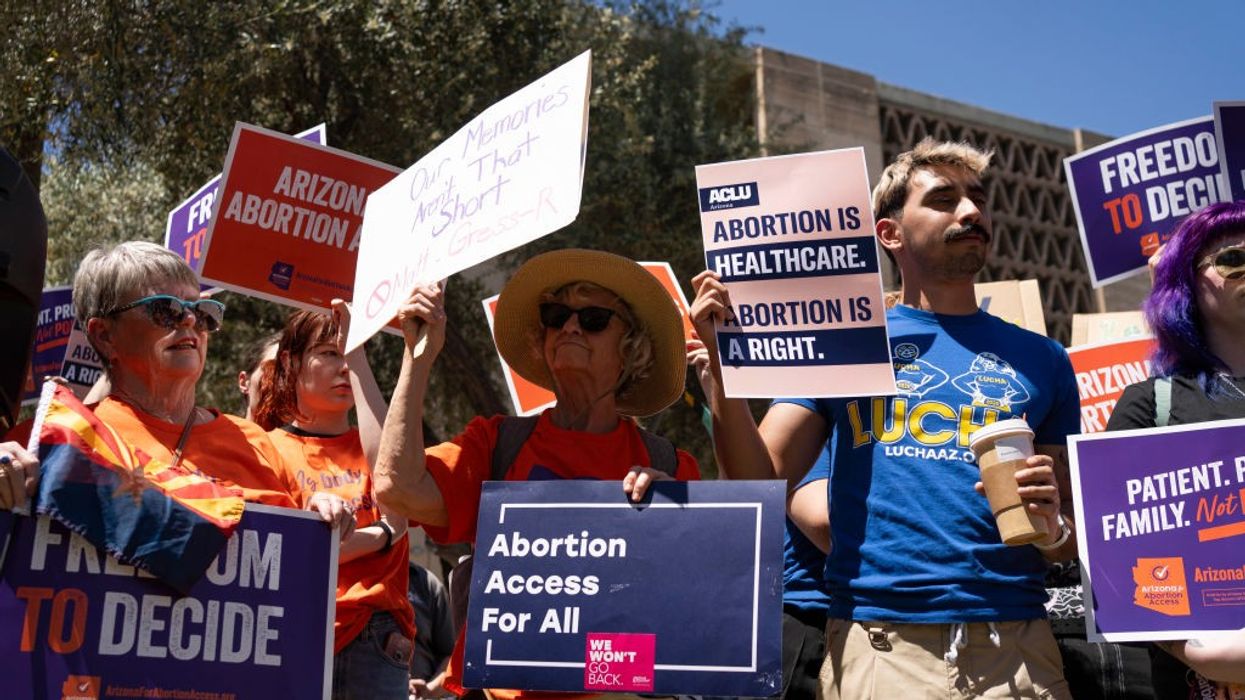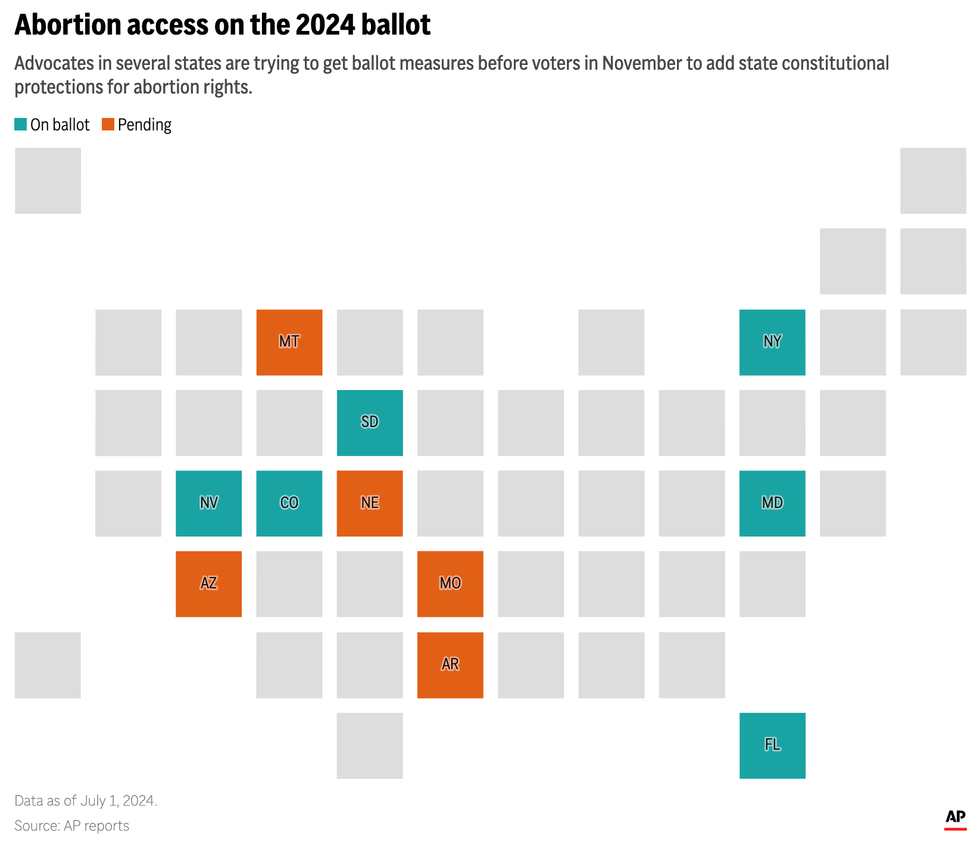County election officials and Democratic Arizona Secretary of State Adrian Fontes will now work on reviewing the signatures and formally certifying the ballot measure by late next month.
Arizona for Abortion Access campaign manager Cheryl Bruce declared that "this is the most signatures ever gathered for a ballot measure in Arizona history, which is a testament to the broad support among Arizona voters for restoring and protecting abortion access in Arizona."
"An astonishing signature collection effort from volunteers, organizers, advocates, patients, and providers in Arizona has made this moment possible."
The Arizona Republic reported that "the secretary of state does not keep data that would easily confirm the number of signatures is the most in state history," but "the number far outpaces that of popular petition campaigns in recent years."
Fontes' office does publish voter registration data. As of April, there were 4,058,320 registered voters—meaning more than 1 in 5 signed their names in support of the abortion rights campaign, which is backed by groups including the ACLU of Arizona, the Fairness Project, Planned Parenthood Advocates of Arizona, and Reproductive Freedom for All Arizona.
"An astonishing signature collection effort from volunteers, organizers, advocates, patients, and providers in Arizona has made this moment possible, and we're thrilled to be part of it," said Fairness Project executive director Kelly Hall in a statement.
"While extreme politicians in Phoenix have allowed a 15-week abortion ban to block patients from getting the care they need, the Arizona for Abortion Access campaign has worked tirelessly to let voters have a say in their own healthcare decisions," she continued. "The enthusiasm we've seen from Arizona voters for this constitutional amendment is unprecedented, and we're ready to stand with them through Election Day and restore the reproductive freedom they deserve."
The effort to pass the Arizona Abortion Access Act began last summer—before a nationally watched legal battle earlier this year: The Arizona Supreme Court upheld an 1864 abortion ban that included no exceptions for rape or incest, then the Arizona Legislature passed and Democratic Gov. Katie Hobbs signed a bill to repeal it.
Still, in addition to banning abortion after 15 weeks, Arizona has rules that make it harder to get care. The proposed amendment would affirm a fundamental right to abortion until fetal viability and limit state restrictions. It would also protect access to care after viability if a healthcare provider determines ending a pregnancy is needed for the patient's life or health.
Reproductive freedom has been a key issue at all levels of American politics since the U.S. Supreme Court's right-wing supermajority reversed Roe v. Wade with their Dobbs v. Jackson Women's Health Organization ruling two years ago, which bolstered GOP efforts to attack access to abortion care—along with birth control.
It remains a top issue going into the November election. Along with choosing which party controls the White House and Congress, voters in several states are set to weigh in on ballot measures designed to protect reproductive rights. The Associated Press published a graphic showing the states where such measures are on the ballot pending:

"Supporters of an Arkansas proposal to scale back the state's abortion ban face a Friday deadline to submit petitions to qualify for the November ballot," according to the AP. "The group behind the measure, Arkansans for Limited Government, said on Facebook and Instagram on Tuesday that it still needed 8,200 signatures out of the 90,704 required."





